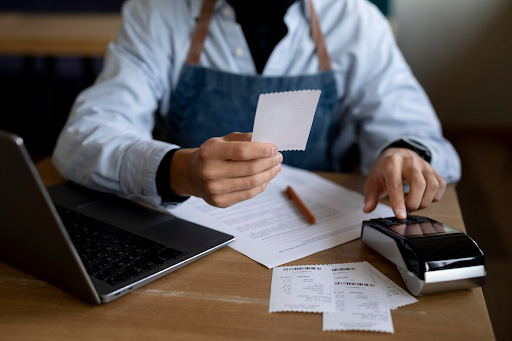Do Receipt Checks Work? What is the Role of an Employee
Retail Loss Prevention Series
Do Receipt Checks Work? What is the Role of an Employee

1. Receipt Checks in Retail
Receipt checks have become a common practice in retail stores, serving as a frontline defense against theft and fraud. As customers exit, they may be asked to show their receipts to verify that all items have been paid for. This practice is particularly prevalent in stores with self-checkout options, where the likelihood of missed scans increases. The primary purposes of receipt checks are to prevent shoplifting, ensure inventory accuracy, and reduce fraud. By implementing these checks, retailers aim to protect their bottom line while maintaining a fair shopping environment for all customers.
2. Effectiveness of Receipt Checks
Receipt checks play a crucial role in deterring theft. By verifying that customers have paid for all items, these checks act as a visible deterrent to potential shoplifters. The knowledge that purchases will be scrutinized at the exit can discourage individuals from attempting to steal.
In addition to deterring theft, receipt checks aid in inventory control. By comparing receipts with the items in a customer’s possession, stores can identify discrepancies and address them promptly. This helps maintain accurate inventory records, which are essential for effective stock management.
Receipt checks also contribute to fraud prevention, particularly with high-theft or high-value items such as electronics. By ensuring that items being returned match those on the receipt, stores can reduce the incidence of return fraud, which can be a significant source of financial loss.
However, customer perception of receipt checks can vary. Some customers may view them as an inconvenience or invasion of privacy. Effective communication from employees is key to mitigating any negative experiences. By explaining the purpose of the checks and conducting them courteously, employees can help ensure that customers leave with a positive impression (source: METRO TV ONLINE).
3. Legal Aspects of Receipt Checks
In many cases, receipt checks are voluntary unless specified in a membership contract, such as those at Costco, or if there is reasonable suspicion of theft. Customers generally have the right to refuse a receipt check, although this may vary depending on store policies and state laws (sources: 33rd Square, 98.1 THE HAWK).
It’s important for both retailers and customers to understand the legal framework surrounding receipt checks. While stores have the right to protect their assets, they must also respect customer rights and privacy. Clear communication of store policies can help manage expectations and reduce potential conflicts.
4. Role of Employees in Receipt Checks
Employees play a vital role in conducting receipt checks. Their responsibilities include performing checks respectfully and efficiently, with a focus on customer service. Training is essential to ensure that employees conduct checks in a manner that is quick, respectful, and non-confrontational.
Employees are also trained to identify suspicious activity. Recognizing behaviors that may indicate theft is crucial for effective loss prevention. When requesting receipt checks, clear communication is key to maintaining a positive interaction with customers.
5. Customer Interactions and Experience
Improving customer compliance with receipt checks involves approaching customers politely and efficiently. Employees should be trained to handle refusals calmly, understanding the legal boundaries and respecting customer rights. In situations where a customer declines to show a receipt, employees should remain professional and seek guidance from store management if necessary.
6. Frequently Asked Questions
- “Are receipt checks legal?” Receipt checks are generally legal, but they must be conducted in accordance with store policies and state laws. Customers have the right to refuse, although this may vary by location.
- “Can stores legally detain you for not showing a receipt?” Stores may detain a customer if there is reasonable suspicion of theft, but this must be done in compliance with legal guidelines.
- “What happens if you refuse a receipt check?” Refusing a receipt check may result in further inquiry by store personnel, but customers are typically within their rights to decline.
- “Why are receipt checks more common now?” The rise in self-checkout options and the need for improved inventory management have led to more frequent receipt checks as part of loss prevention strategies.
7. Conclusion: Balancing Security and Customer Service
Receipt checks are an integral part of retail loss prevention, helping deter theft, manage inventory, and prevent fraud. The role of employees is crucial in ensuring that these checks are conducted in a manner that balances security with customer service. By approaching receipt checks with professionalism and respect, employees can help maintain a positive shopping experience while supporting the store’s loss prevention efforts. As retail environments continue to evolve, adapting receipt check practices to meet both security needs and customer expectations will remain essential for success.







